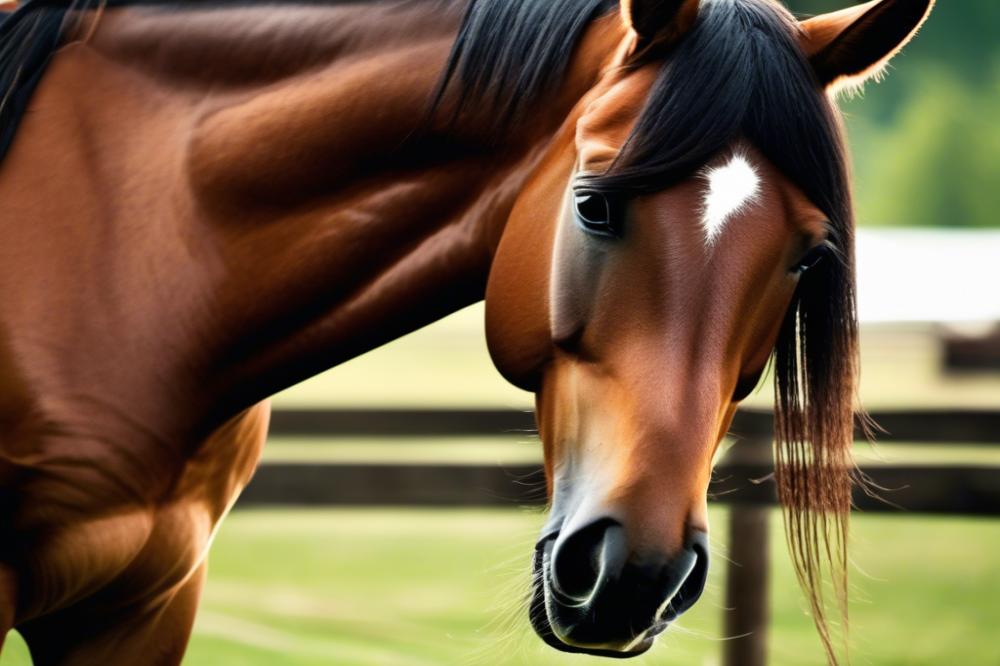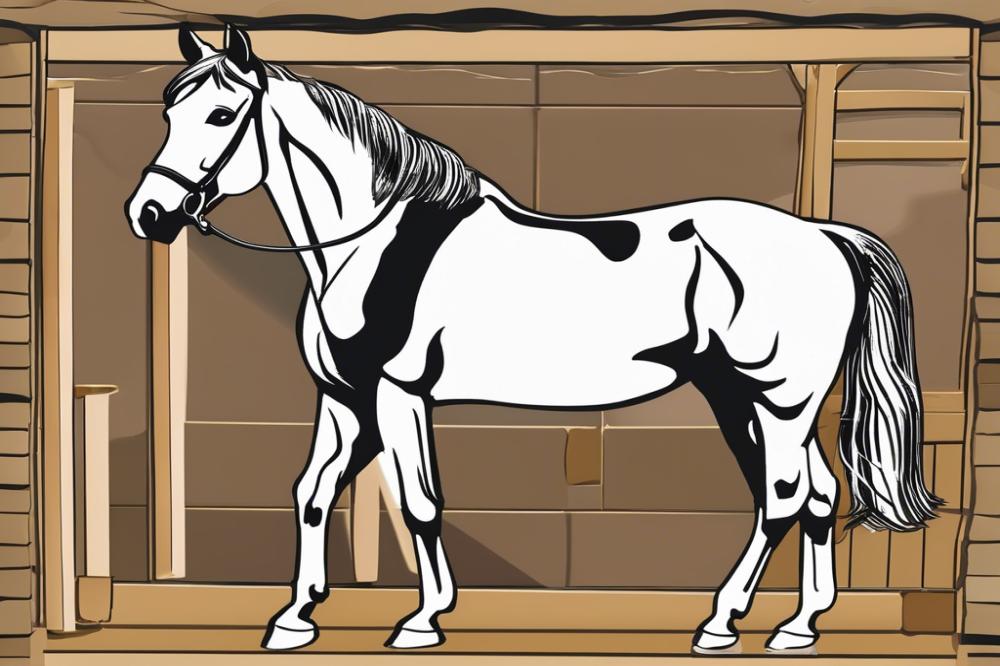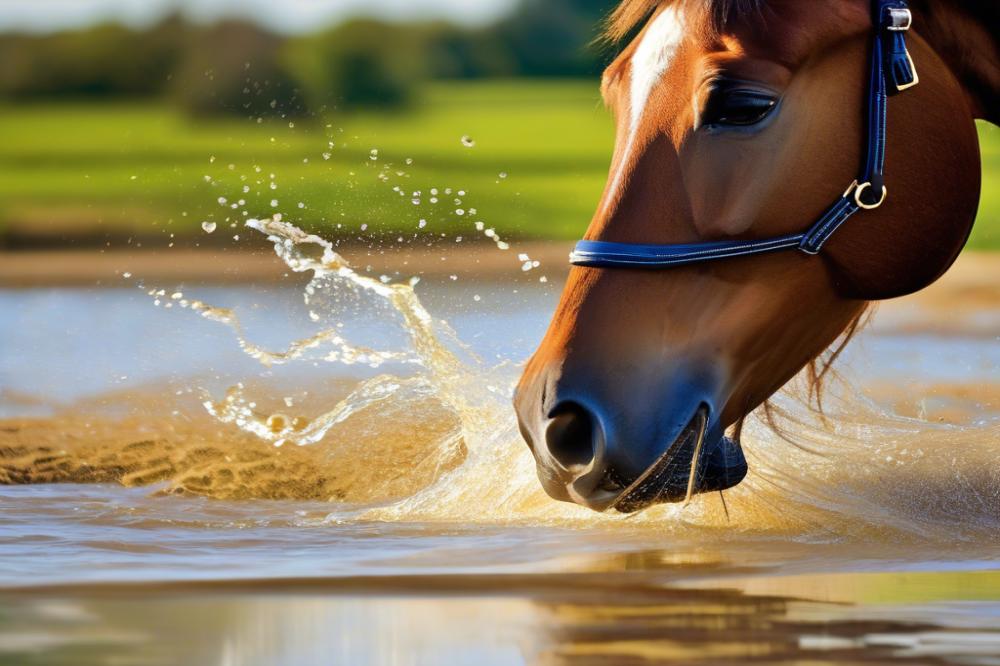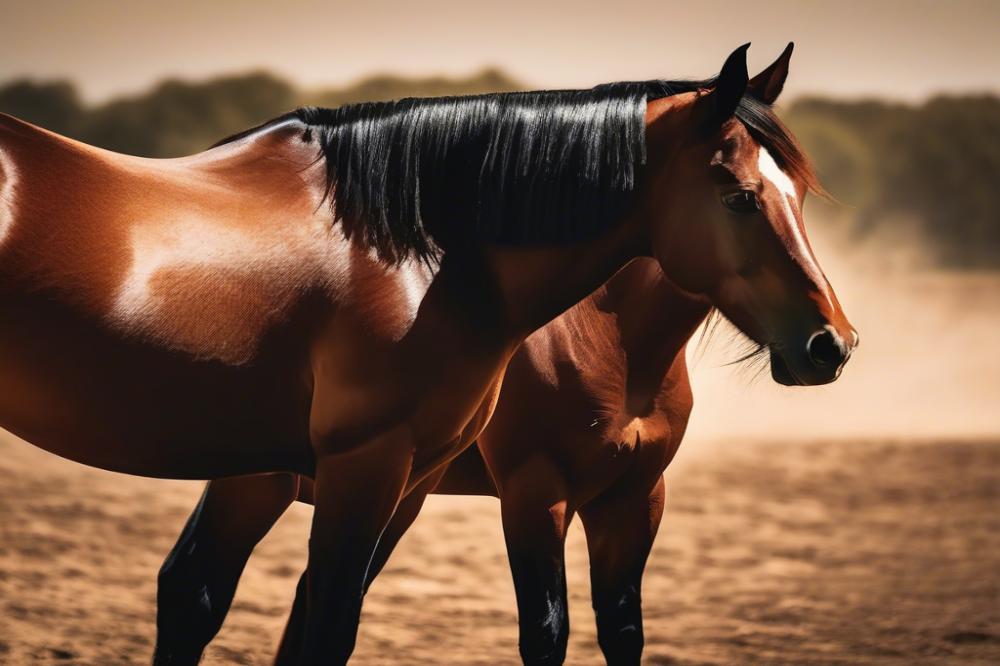What is Dehydration in Horses?
Dehydration in horses occurs when they lose more fluids than they take in. It’s pretty straightforward, right? Just like when we feel parched after a long day under the sun, horses can suffer similarly. Maintaining proper hydration is crucial for their overall well-being. A horse that doesn’t drink enough water may experience health problems, and nobody wants that!
The Importance of Hydration for Horses
Think about how much we rely on water every day. For horses, hydration is just as vital. It supports their organs, helps digest food, and keeps their joints moving smoothly. Without enough water, a horse can become sluggish and may not perform at its best. Imagine a young rider training for horse shows for kids, but their trusty steed can’t give its all due to dehydration. That’s a recipe for disappointment!
How Common is the Problem?
Now you might be wondering, how widespread is this issue? Unfortunately, dehydration isn’t as rare as we’d like to think. Different factors can lead to it, such as hot weather and increased activity levels. Some horses might have poor drinking habits, which can make things even trickier. If they don’t drink enough, their water intake could easily fall short. Without regular monitoring during hot days or intense workouts, even the best horse care routines can falter.
Why It’s a Big Deal
When looking at hydration, consider it a matter of horse health. Dehydration can lead to serious complications, impacting everything from a horse’s energy levels to its ability to recover from exertion. Proper equine hydration isn’t just a bonus; it’s a necessity. Everyone loves a horse with sparkling energy, but that comes from a well-hydrated system. So let’s do our part in being informed horse owners!
The Takeaway
In short, paying attention to their drinking habits can make a huge difference in a horse’s health. Keep an eye on your equine buddy, provide fresh water daily, and you’ll both be happier for it. After all, a horse needs to quench its thirst not just for riding but for a vibrant life—something that goes beyond just the ‘brands on horses‘ and aesthetics. Remember, when it comes to horse care, hydration is one key ingredient for success!
Causes of Dehydration in Horses

Let’s dive into what can lead to dehydration in horses. First on the list is inadequate water intake. If a horse isn’t drinking enough, it can quickly lose fluids. Ever seen a horse that ignores the water trough? It can be worrying, especially during hot days.
Speaking of hot days, environmental factors play a huge role. Intense heat and high humidity can lead to sweating. Horses sweat to cool down, but when the temperature soars, they can lose more than just a few drops. When you notice your horse sweating buckets, think about their hydration. A good horse care routine means making sure they always have access to fresh water.
Increased physical exertion is another cause. Horses in training or those working hard burn up energy and fluids alike. After a long ride or a series of jumps, it’s vital to check their drinking habits. Don’t forget that even playtime in the pasture can lead to dehydration. Horses are like kids at a playground—activity is fun until they flop down for a drink.
Sometimes, illness or medical conditions can sneak up on us. Horses can’t always tell us what’s wrong. An underlying health issue could lead to decreased water intake. If a horse is feeling under the weather, they might not feel up to drinking. Monitoring their overall equine health can help spot these problems before they get too serious.
Dietary influences can’t be overlooked either. If a horse primarily eats dry feed, they might not be absorbing enough moisture. Grains and hay may not provide the hydration they need. It’s like trying to quench thirst with crackers instead of a glass of water. Including wet feeds or letting them graze on fresh grass can help improve hydration.
All these factors intertwine in the grand picture of horse health. A bit of attention can go a long way in preventing dehydration. Remember to keep an eye on your horse’s water intake and overall behavior. Staying vigilant means happier, healthier horses!
Signs and Symptoms of Dehydration

When it comes to equine health, recognizing the signs of dehydration is crucial. You might notice your horse has dry mucous membranes. Just like when we have dry lips, a horse can show similar signs. Check inside their mouth; if it looks parched, that’s a red flag. Additionally, their gums should ideally be moist and healthy. If they feel tacky or sticky instead, it’s time to pay attention.
Behavioral changes can also be key indicators. Is your horse unusually lethargic? Horses are known for their energy, so a sudden drop in enthusiasm can mean something isn’t right. They might stand still instead of trotting around or seem disinterested in their usual activities. Keep an eye on their appetite, too. A decrease in eating can signal more than just picky eating; it might relate to hydration issues.
The skin turgor test can be a simple yet effective way to assess hydration. Pinch the skin on your horse’s neck and release it. Does it bounce back quickly? If it takes its sweet time, dehydration might be at play. Other clinical signs include increased heart rate or sunken eyes, which aren’t normal for a healthy horse. Remember, these signs are not all that uncommon, but they’re serious.
It’s essential to assess the severity of any dehydration in horses. Mild cases might show only a few signs, while moderate cases can lead to more alarming symptoms. Severe dehydration can be life-threatening with the risk of colic and other complications. Knowing the symptoms can help catch any issue before it turns into a bigger problem.
Regular horse care involves recognizing these changes in behavior and physical signs. A well-hydrated horse is often a happy horse. So, making sure your equine companion drinks enough water is vital for their overall horse health. Observing their drinking habits daily can help catch potential problems early. Always be proactive and seek out dehydration treatment promptly if needed, as recovery can be straightforward if caught in time.
Diagnosis of Dehydration in Horses

Importance of Veterinary Assessment
When it comes to equine health, a veterinarian’s expertise is priceless. They have the experience to recognize signs of dehydration that we might overlook. Relying on your own judgment can sometimes lead to mistakes. An expert can provide a proper assessment and recommend the right treatment options. Horse care involves more than just feeding and grooming; regular check-ups are part of the deal. Without professional help, dehydration can quickly escalate into a serious problem.
Diagnostic Methods and Tools
Veterinarians have several tools at their disposal to check for hydration levels. Blood tests, for example, can reveal important information about a horse’s electrolyte balance. Urine tests can also provide clues about hydration status. Using a portable ultrasound, a vet can even check fluid movement and health of organs. Each tool gives a new perspective, almost like pieces of a puzzle coming together.
Evaluating Hydration Status Through Clinical Examination
During a clinical examination, your vet will look for several key signs. They might check the skin’s elasticity, which can tell a lot about moisture levels. Pinch the skin on your horse’s neck, and see how quickly it returns to normal. Fascinating, isn’t it? If it takes longer than usual, that’s a red flag. The vet will also examine the gums. Healthy gums should be moist and pink, while dry or pale ones signal trouble.
Eyes can also hint at a horse’s hydration. Sunken eyes or a dull expression aren’t ideal; they often indicate insufficient water intake. Additionally, checking horse drinking habits at home gives clues. If your horse is not drinking much or suddenly changes their routine, it’s worth investigating. Regular monitoring can help catch dehydration early, keeping your equine companion healthy and happy. Remember, knowledge is power when it comes to horse health.
Treatment of Dehydration
Immediate Response Strategies
When a horse shows signs of dehydration, quick action is vital. You can’t just shrug it off; this isn’t something you want to mess around with. First, check for signs like dry gums or sunken eyes. If you notice these issues, it’s time to jump into action. Offer your horse water immediately. Sometimes, horses just need a nudge to start drinking again.
Administering Fluids: Oral and Intravenous Methods
If the horse isn’t drinking enough, oral rehydration is the next step. You can mix water with electrolytes to make it more appealing. Add a bit of flavor, too—applesauce or even molasses can turn into a tasty treat! However, if your horse seems severely dehydrated, a vet visit may be necessary. In such cases, intravenous fluids might be the only way to go. This method delivers fluids directly into the bloodstream, giving a faster impact. Your equine health can quickly improve with just a bit of water and proper care.
Monitoring and Reassessment of Hydration Status
After any treatment, keep a close eye on your horse. Observation is crucial in these situations. Regularly check their gums and skin elasticity. A quick pinch of the skin on their neck can show you how hydrated they are. This simple test can help assess whether the treatment is working or if more action is needed.
Role of Electrolytes in Recovery
Electrolytes play a big part in helping horses bounce back from dehydration. They replace essential minerals lost through sweat. Just like humans, horses need a good balance to feel their best. Mixing an electrolyte solution into their drinking water can encourage hydration while also providing vital nutrients. Remember, it’s not just about water; it’s all part of good horse care and maintaining well-rounded horse health. A properly hydrated horse is a happy horse, and a happy horse is a joy to see!
Prevention of Dehydration in Horses
Maintaining Adequate Water Supply
Keeping fresh water available is essential for your horse’s health. Horses drink a lot, often consuming several gallons a day. Placing clean water buckets or troughs in their stalls and pastures ensures they always have access. Check that these containers are filled regularly. Water’s not just for quenching thirst; it’s vital in aiding digestion and keeping muscles healthy. If your horse is reluctant to drink, consider adding electrolytes to their water. Sometimes, a pinch of salt or a splash of flavor can entice even the pickiest drinker.
Strategies for Managing Hydration During Exercise
When it comes to exercise, planning ahead is vital. Don’t wait until your horse shows signs of tiredness before offering water. Allow breaks and make sure there’s water nearby. During intense activities, use electrolyte mixes. They help replace losses from sweat and encourage drinking afterward. Remember, horses may not always drink as much as they should, especially in new environments. Have a strategy in place. For instance, carrying water with you during long rides can be a game-changer.
Importance of Diet in Hydration
Who knew diet played such a big role in hydration? Feeding your horse hay with a high moisture content can boost their water intake, too. Soaking hay is another option, which not only increases water consumption but also can be easier on digestion. Including fruits and veggies, like carrots or watermelons, provides added moisture. These treats can be a fun way to keep your horse hydrated while reinforcing your bond. Remember, a balanced diet contributes to overall equine health.
Regular Health Checks and Monitoring
Routine health checks are crucial in catching early signs of dehydration. Make it a habit to observe your horse’s drinking habits closely. Is he drinking less than usual? Does he feel warmer to the touch? These can be red flags. A regular veterinary check-up can also help catch hidden issues. Staying proactive about their hydration needs will pay off. After all, caring for your horse is a partnership built on trust and attentiveness. The better insights you have into their unique hydration requirements, the happier and healthier they’ll be.
Long-term Effects of Dehydration
Keeping your horse healthy means being aware of how dehydration can impact overall health and performance. When equine hydration is inadequate, a horse may experience a drop in energy. Have you ever felt sluggish after skipping your morning drink? Horses feel the same way. Poor hydration can affect their stamina during riding or competing, leading to an overall dip in performance.
Long-term dehydration can have more serious consequences. It’s not just about feeling tired. Vital organs, including the kidneys, may suffer if the horse does not drink enough over time. These organs are essential for filtering toxins. When they are not functioning well, it can lead to a slew of health problems.
Risks of Recurring Dehydration
Now, think about this: if a horse experiences dehydration often, they may develop habits that lead to it happening again. Just like a person who skips meals might not feel hungry when they should, horses can lose their drinking habits. If every time they drink is a challenge, they may stop seeking water altogether.
Staying hydrated is crucial for maintaining a robust immune system. An immune system that is down can leave your horse more susceptible to illnesses. Nobody wants their beloved animal fighting off colds or worse, especially if it could be avoided with proper horse care.
Potential for Chronic Conditions
Chronic conditions can arise from ongoing dehydration. Think of it like this: if a plant doesn’t get water, it doesn’t just wilt; it can die. Horses can face similar issues. They may develop problems like colic or even laminitis. No owner wants to see their horse in pain due to something that could have been prevented.
Poor hydration often leads to a vicious cycle. Affected horses may struggle to drink enough. If they have ongoing issues with their organs, they may not feel like eating or drinking. It’s a tough spot for any horse to be in, and as owners, we want to avoid that for our equine friends.
Overall, long-term dehydration can set off a chain reaction in horse health. Regularly monitoring their drinking habits and ensuring they stay hydrated is key to keeping these majestic creatures healthy and happy.
Wrapping it All Up
As we finish this discussion on hydration in horses, let’s take a moment to summarize the key points. First off, horses need water just like humans do. In fact, keeping them well-hydrated is crucial for their overall health and performance. It’s easy for owners to overlook this, especially when we’re busy with chores, training, or just trying to keep up with the antics of our four-legged friends.
Monitoring your horse’s water intake should be a regular part of your routine. Pay attention to their behavior, watch for signs of thirst, and always check their water supply. Remember, just like the classic “donkey vs mule difference,” understanding what your horse needs is essential. Each equine is unique and may require different amounts of water based on their age, size, and physical activity.
Prevention is always better than cure. Taking steps to ensure your horse has access to fresh, clean water at all times can prevent many health issues down the line. And while it might feel like you’re nagging just like an old horse groomer explaining before a big show, it’s all part of keeping your pet in tip-top shape. After all, a happy horse is a healthy horse!
If you’ve noticed anything off about your horse’s drinking habits or condition, don’t hesitate to seek out veterinary advice. It’s better to be safe than sorry. The vet can offer insights that may transform your approach to horse care, perhaps even unveiling the mysteries behind subjects like horse grooming brushes explained. At the end of the day, we all want our horses to thrive, so let’s prioritize their hydration together.
Take this knowledge and run with it; your equine partner deserves the best care possible!



